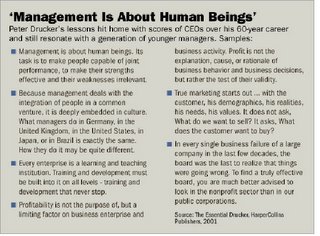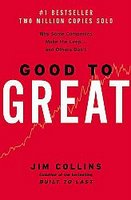Based on decades of scientific research on human motivation, Daniel Pink shows in this RSA Animate video the mismatch between what science knows and how business has it all wrong about what truly motivates us. He proves that while the old-fashioned carrot-and-stick approach works in some instances; it's precisely the wrong way to motivate when tasks are complex in nature or involve conceptual creative thinking. The three elements of true motivation are:
- Autonomy: the desire to direct our own lives
- Mastery: the urge to get better and better at something that matters
- Purpose: the yearning to do what we do in the service of something larger than ourselves












 One of the most respected and sought after executive coaches is Marshall Goldsmith. His primary insight is that “good manners is good management”. Now you may ask yourself, why would impressive and successful executives need help with manners and behavioral issues? After all they most likely acted out consciously or unconsciously Stephen Coveys’ “Seven Habits of Highly Successful People” to get to the position they hold. But don’t be misled by the aura of success or turn your back on the human condition and its foibles.
One of the most respected and sought after executive coaches is Marshall Goldsmith. His primary insight is that “good manners is good management”. Now you may ask yourself, why would impressive and successful executives need help with manners and behavioral issues? After all they most likely acted out consciously or unconsciously Stephen Coveys’ “Seven Habits of Highly Successful People” to get to the position they hold. But don’t be misled by the aura of success or turn your back on the human condition and its foibles.




